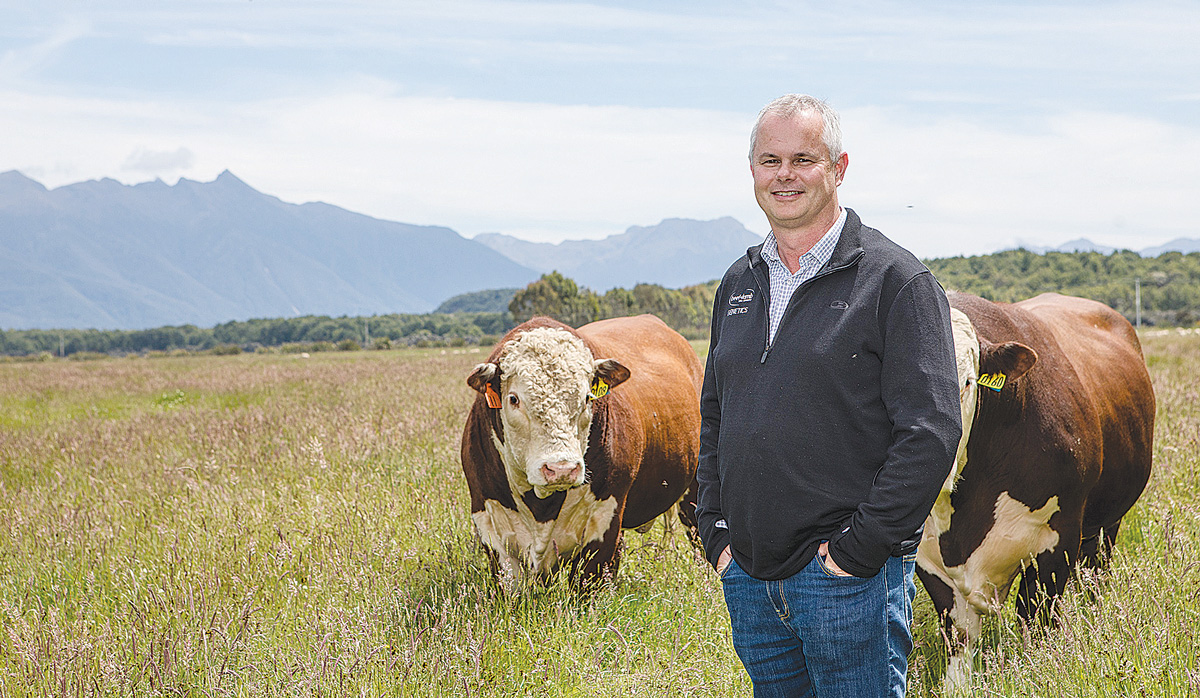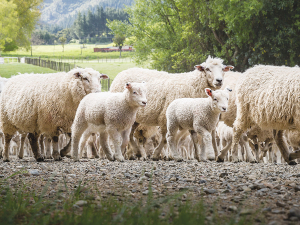The rollout of the New Zealand Genetic Evaluation Version 6 is said to mark a step-change in the depth and breadth of genetic information available to both stud and commercial sheep breeders.
For ram breeders, this iteration of the New Zealand Genetic Evaluation (the genetic analysis machinery behind Beef + Lamb New Zealand's nProve system) generates even more accurate information that, through nProve, helps their commercial clients as they strive to improve the productivity and profitability of their sheep flocks.
Dr Jason Archer, Beef + Lamb New Zealand's head of genetics, says the New Zealand Genetic Evaluation Version 6 (NZGEv6) builds on the genetic tools that have made a significant contribution to the New Zealand's sheep industry's productivity gains.
"It has been estimated that genetics has driven 51% of the spectacular gains made in our sheep industry over the past 35 years, despite sheep farming being pushed further into more marginal country. NZGEv6 will help ensure this momentum continues and farmers can continue to breed sheep that perform in an increasingly challenging environment."
Archer says farmers are farming with more extreme weather, widespread drench resistance, labour shortages, environmental responsibility, the spread of facial eczema as well as the vagaries of the market.
When combined with the power of measurement and management, genetics can help improve growth, reproduction, ewe constitution and body condition, reduce dags, parasite burdens and the impact of facial eczema.
NZGEv6 introduces new capabilities to better support breeding decisions.
Archer says the upgrade was undertaken so new technologies, including a broader application of genomics and improved ability to deal with new traits, could be incorporated into the NZGE.
He says B+LNZ's Genetic Science Team has undertaken a huge amount of work to overcome the limitations in previous versions and are rolling out an upgraded NZGEv6 to better serve the industry's needs.
"Genetics has traditionally focused on improving production on-farm, but breeders are increasingly incorporated environmental outcomes, better animal welfare and an improved eating experience for consumers in their genetic packages."
 |
|---|
|
Dr Jason Archer, Beef + Lamb New Zealand's head of genetics.
|
NZGEv6 will build on NZGE's current capability which evaluates over 11 million animals each week and incorporates over 160,000 genotypes. The updated version will have the ability to include millions of genotypes in a single evaluation.
A claimed benefit of NZGEv6 is its ability to include genotypes from diverse breeds in a single evaluation, eliminating the need for separate Maternal and Terminal evaluations.
Archer says when larger supersets of 450,000 genotypes can be combined in NZGEv6, they see greater accuracy. This allows the more effective use of all available data. "NZGEv6 puts us on a path to potentially allow for future genotyping of a wider range of breeds, such as shedding sheep and other emerging breeds."
He says NZGEv6 is also far better at handling new or less commonly measured traits such as meat quality, facial eczema or methane where there is only limited data available for genetic analysis relative to other traits. This means farmers will be able to effectively incorporate these traits into their breeding objectives, even when data is limited.
A Paradigm Shift
Jason Archer says NZGEv6 is part of B+LNZ's ongoing commitment to delivering world-class genetic tools to New Zealand sheep farmers.
He says the tool is a paradigm shift for stud breeders and supports their adoption of new genetic technologies such as genotyping.
Archer says it has been 25 years since Sheep Improvement Ltd (SIL) was formed. The first iteration of the NZGE, known as SIL-ACE, and the first across-flock evaluation was carried out in 2006.
Genomics began to be incorporated into SIL in 2017 starting with multi-step evaluation and this moved to a single-step evaluation a year later.
He says NZ sheep breeders are renowned for being fast adopters of tools that will help drive productivity, profitability and improve animal welfare. This has been reflected in their use of performance recording and the adoption of technologies such as genotyping.
Those breeders who have been using genotyping technology are generally making more rapid genetic progress and have higher-than-average breeding indexes, ultimately meaning more money for the commercial farmers using their genetics.




















